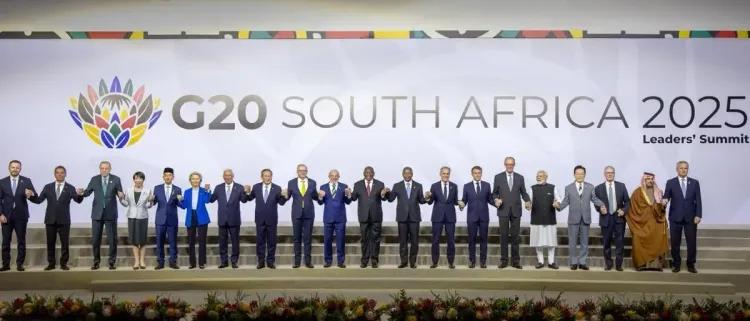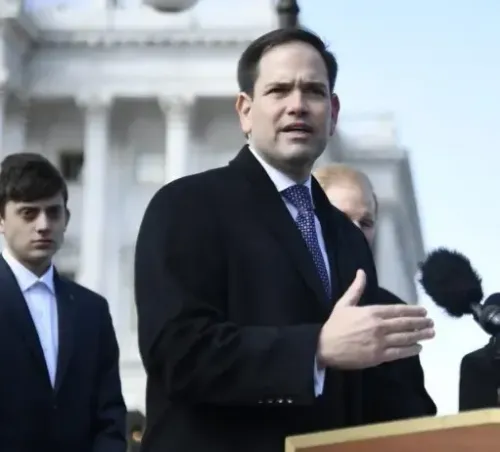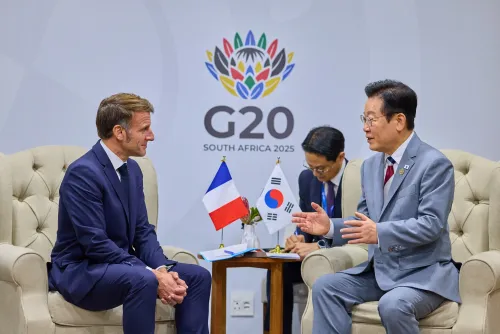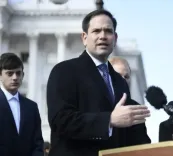Did G20 Leaders Achieve Consensus on Key Global Issues?

Synopsis
Key Takeaways
- World leaders reached consensus on disaster resilience and energy transitions.
- First G20 Summit in Africa emphasizes the continent's global role.
- Over 600 million Africans lack access to electricity, highlighting inequalities.
- Critical Minerals Framework promotes sustainable development.
- Call for integrated approaches to address global challenges.
Johannesburg, Nov 23 (NationPress) At the 20th Group of 20 (G20) Summit, world leaders successfully reached a significant consensus on critical issues including disaster resilience, debt sustainability, just energy transitions, and critical minerals as they officially adopted the Leaders' Declaration of the G20 South Africa Summit on Saturday.
This declaration was announced during the opening of the summit, marking the first time it has been held on the African continent. The two-day event is themed "Solidarity, Equality and Sustainability."
The declaration highlights that the increasing frequency and severity of disasters and shocks are jeopardizing development efforts and overburdening response systems, as reported by Xinhua news agency.
Leaders emphasized that these challenges hinder progress towards sustainable development and place strain on both national capabilities and the international system's response capacity.
They advocated for integrated, people-centered strategies and underscored the necessity for enhanced disaster resilience and response mechanisms, particularly for vulnerable small island developing states and least developed countries.
The topics of energy access and transition were also pivotal. The declaration points out stark inequalities, revealing that "over 600 million Africans lack access to electricity."
The leaders endorsed initiatives to triple global renewable energy capacity and double energy efficiency improvements by 2030, stressing the urgent need for mobilizing increased investments and facilitating affordable financing for developing nations, tailored to their specific contexts. They also recognized the significance of voluntary technology transfer "on mutually agreed terms."
Regarding critical minerals, the G20 approved a Critical Minerals Framework, intended as a voluntary guideline promoting "sustainable, transparent, stable, and resilient critical minerals value chains that are essential for industrialization and sustainable development."
The declaration insists that mineral resources should act as "a catalyst for value addition and broad-based development, rather than mere raw material exports," affirming the rights of producing nations to leverage their resources for inclusive growth.
This leaders' declaration reflects a collective understanding that addressing global challenges necessitates more coordinated and equitable strategies.









